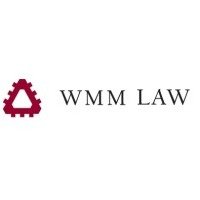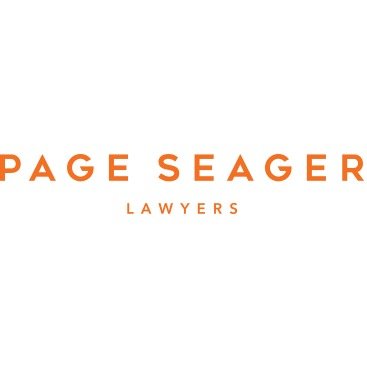Best Acquisition / Leveraged Finance Lawyers in Hobart
Share your needs with us, get contacted by law firms.
Free. Takes 2 min.
List of the best lawyers in Hobart, Australia
About Acquisition / Leveraged Finance Law in Hobart, Australia
Acquisition and leveraged finance law focuses on the legal frameworks that govern the funding of business acquisitions, including management buyouts, private equity-invested purchases, and other significant corporate transactions. In Hobart, Tasmania, this field encompasses the laws, regulations, and standards related to structuring, negotiating, and finalising financing agreements where leverage is used to maximise the acquisition’s value. Leveraged finance typically refers to borrowing through loans or bonds, where the acquired business’s assets or cash flow often serve as collateral for the financing. This legal speciality is vital for facilitating complex transactions while managing risks for all parties involved.
Why You May Need a Lawyer
There are several situations where engaging a lawyer experienced in acquisition and leveraged finance in Hobart is crucial:
- Negotiating and drafting loan agreements or facility documents for funding an acquisition
- Ensuring proper legal due diligence on the target business, including reviewing liabilities, encumbrances, and legal risks
- Structuring the transaction to comply with corporation laws, financial regulatory requirements, and tax considerations
- Advising on security arrangements, such as mortgages, personal guarantees, or charges over assets
- Managing communications and negotiations between lenders (such as banks or private equity firms), borrowers, and investors
- Resolving disputes that may arise over breached warranties, repayment defaults, or other contractual issues
- Advising on insolvency or restructuring issues if the leveraged business faces financial difficulties post-acquisition
Given the complexity and high value of these transactions, legal advice helps to minimise risks and ensure regulatory compliance, which is essential for protecting your commercial interests.
Local Laws Overview
In Hobart, acquisition and leveraged finance transactions are principally governed by Australian federal law, but there are also Tasmanian-specific considerations relevant to local companies and assets. Key legal frameworks include:
- The Corporations Act 2001 (Cth), which regulates corporate conduct, directors’ duties, and significant transactions
- The Australian Securities and Investments Commission (ASIC) regime, which oversees company registration and financial services licensing
- The Personal Property Securities Act 2009 (Cth), covering registration and enforcement of security interests over moveable assets
- The Australian Competition and Consumer Act 2010 (Cth), which addresses anti-competitive conduct and merger clearance requirements
- Tasmanian State revenue laws, stamp duty implications, and land titles registration for asset-backed financings involving Tasmanian property
- Banking laws and regulations, including prudential standards set by the Australian Prudential Regulation Authority (APRA)
Lawyers practising in Hobart are well-versed in how these federal and local statutory frameworks interact, as well as typical practices in structuring and documenting finance transactions in line with both commercial and regulatory expectations.
Frequently Asked Questions
What is acquisition finance?
Acquisition finance refers to the funding used by companies or investors to purchase another business. It can involve a variety of financial instruments, such as loans, bonds, or even mezzanine debt, structured to maximise the purchasing party’s leverage while balancing the risks involved.
How is leveraged finance different from traditional finance?
Leveraged finance specifically involves higher levels of debt than traditional finance, and often relies on the assets and cash flow of the acquired business as collateral. This higher risk is sometimes balanced by the potential for greater returns for investors.
Why is legal due diligence important in acquisition finance?
Legal due diligence helps identify any liabilities, legal risks, or encumbrances with the target business. It ensures that the buyer and financier make informed decisions and helps prevent unexpected challenges post-acquisition.
Are there specific Tasmanian laws I need to know when financing an acquisition in Hobart?
While most of the framework is federal, Tasmanian laws may apply to stamp duty, local registration of securities over real estate, and compliance with local business regulations. A Hobart-based legal practitioner will guide you on these specifics.
What is a security interest, and how is it registered in Tasmania?
A security interest is a legal right granted by a borrower to a lender over specific assets as collateral for a loan. In Tasmania, most security interests are registered through the national Personal Property Securities Register, while interests over real property may require local registration with the Land Titles Office.
Do I need approval from Australian regulators to finance a large acquisition?
Significant acquisitions may require approval from the Australian Competition and Consumer Commission (ACCC) in relation to competition law. Additionally, certain investments may need notification to the Foreign Investment Review Board (FIRB) if overseas parties are involved.
What happens if the borrower defaults on a leveraged loan?
In the case of default, the lender has rights under the loan arrangement to enforce security interests, which may include taking possession of assets, appointing external administrators, or commencing insolvency proceedings. Legal assistance is essential for both enforcing and defending rights in this situation.
Can acquisition or leveraged finance be used for small businesses?
Yes, acquisition and leveraged finance arrangements are available for both large-scale and small business acquisitions, though the terms and regulatory expectations may differ depending on deal size and complexity.
How long does the legal process for a leveraged acquisition usually take?
The timeframe depends on the complexity of the transaction, due diligence, negotiation, and regulatory approvals needed. Typical transactions can take anywhere from several weeks to several months.
How do I choose a lawyer for acquisition or leveraged finance in Hobart?
Seek a lawyer with demonstrated expertise in corporate finance, commercial transactions, and a strong knowledge of local and federal laws. Ask for references, check professional credentials, and choose someone with experience in deals similar to yours.
Additional Resources
People in Hobart seeking guidance on acquisition and leveraged finance can access information or support from the following bodies and resources:
- Australian Securities and Investments Commission (ASIC) - corporate regulation, company searches, compliance guides
- Australian Competition and Consumer Commission (ACCC) - guidance on competition law, merger clearances
- Australian Prudential Regulation Authority (APRA) - information on banking and prudential standards
- Business Tasmania - advice and resources for Tasmanian businesses and investors
- Law Society of Tasmania - lawyer directories, legal advice clinics, professional standards information
- Personal Property Securities Register (PPSR) - for checking and registering security interests
- Foreign Investment Review Board (FIRB) - advice on overseas investment approvals
Next Steps
If you are considering or involved in an acquisition or leveraged finance transaction in Hobart, Tasmania:
- Start by gathering all relevant documents such as company financials, business plans, and asset details
- Consult with an experienced lawyer who specialises in corporate finance and has local Hobart knowledge
- Discuss your objectives, prospective funding arrangements, and key concerns with your legal advisor
- Work with your lawyer to undertake due diligence, structure the deal, and negotiate contractual terms
- Ensure all regulatory and registration requirements are addressed prior to finalising any agreements
- Maintain clear communication with all stakeholders throughout the process to facilitate a smooth transaction
Taking these steps can help safeguard your financial interests and ensure your acquisition or leveraged finance transaction in Hobart runs efficiently and lawfully.
Lawzana helps you find the best lawyers and law firms in Hobart through a curated and pre-screened list of qualified legal professionals. Our platform offers rankings and detailed profiles of attorneys and law firms, allowing you to compare based on practice areas, including Acquisition / Leveraged Finance, experience, and client feedback.
Each profile includes a description of the firm's areas of practice, client reviews, team members and partners, year of establishment, spoken languages, office locations, contact information, social media presence, and any published articles or resources. Most firms on our platform speak English and are experienced in both local and international legal matters.
Get a quote from top-rated law firms in Hobart, Australia — quickly, securely, and without unnecessary hassle.
Disclaimer:
The information provided on this page is for general informational purposes only and does not constitute legal advice. While we strive to ensure the accuracy and relevance of the content, legal information may change over time, and interpretations of the law can vary. You should always consult with a qualified legal professional for advice specific to your situation.
We disclaim all liability for actions taken or not taken based on the content of this page. If you believe any information is incorrect or outdated, please contact us, and we will review and update it where appropriate.









